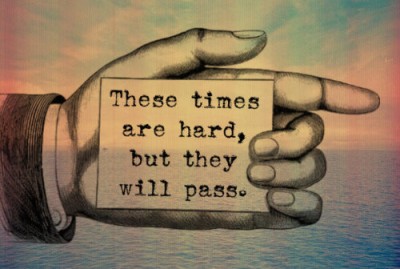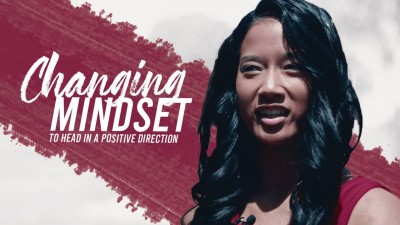Are you an introvert or an extrovert?
You’ve heard the differences between the two: introverts are shy and extroverts are outgoing. Introverts would rather be at home by themselves and extroverts want to keep the party going for as long as possible. Introverts keep to themselves and a small group of people, while extroverts prefer having a wide variety of friends.
It seems like there’s a general understanding of the dramatic differences between the two. Introverts can’t wrap their heads around how an extrovert can maintain such high energy levels and handle all the social pressure. Meanwhile, extroverts are boggled by how much time an introvert can spend in solitude. But, have you ever wondered whether there’s more to introvert vs. extrovert personality types than there would seem to be on the surface? Can you truly draw a clean line between shy personalities on one hand, and outgoing personalities on the other? Don’t you have times when you feel more introverted and other times when you feel more extroverted? What is the real difference between introverts and extroverts, and does identifying with one over the other, affect self-acceptance?
Continue reading to learn more about these personality types and how they view themselves and the world around them.
The differences between introverts vs. extroverts
Almost everyone knows about the concept of introverts vs. extroverts. The terms are tossed around loosely nowadays, both as part of casual conversations and various personality tests. The terms were first used in the 1920s by Carl Jung, a psychoanalyst and key figure in the development of modern psychology. The most common misunderstanding when it comes to discussing introverts vs. extroverts, is the simplistic idea that one is shy (the introvert), while the other is outgoing (the extrovert). In reality, Jung used the terms as a loose description of how different groups of people energise themselves.
Introverts recharge by spending time on their own, while extroverts recharge through spending time with others. Still, the majority of people today view the differences between introverts vs. extroverts in extremes. They take personality tests that describe them as one or the other, depending on their behaviours and preferences. For example, the Meyers-Briggs Type Indicator, is a personality inventory based on Jung’s understanding of psychology. It uses four sets of personality preferences, with introversion vs. extroversion as the first pair. They offer in-depth descriptions of the differences between the two personality types.
Introverts
Introverts are people energised by their internal worlds. They thrive on spending extensive amounts of time on their own and don’t require much external input. Introverts reflect and carefully consider their options when presented with a decision. They also tend to avoid conflict where possible. Creativity and visualisation come naturally to introverts because they spend much of their time in their heads. Although it might seem like they’re in their own world, they use their imaginations to bring new perspectives to the table. Sometimes introverts prefer their ideas of something to the actual thing itself.
An introvert’s social circle tends to be small with usually a few people they prefer to know well. They are also fantastic listeners. When they choose to spend time with other people, they often assume the role of listening and absorbing whatever is going on around them. Introverts speak up when they have something to say, but prefer observing their surroundings.
Extroverts
Extroverts, on the other hand, get their energy from spending time involved in a lot of activities with different people. They are excited when they get to meet up with others and enjoy group activities and collaboration with people around them. Oftentimes extroverts jump into something immediately before taking the time to consider the alternative outcomes. They don’t always look at their different options before making a quick decision and charging forward. Instead, they adjust course as they go if they find a path isn’t working for them. Taking action and making events happen makes them feel at home. Whether it’s spending a night out with friends, organising group events, or collaborating on a project, extroverts are bound to thrive. They usually know many different people across a variety of social groups.
Are you an introvert or an extrovert?
Some people consider themselves either an introvert or an extrovert, one or the other. But do you ever feel like you’re somewhere in between the two sides, rather than strictly one or the other? There are plenty of others who feel like they fit into both categories at different times. They see parts of themselves in both categories. And they’re right. When Jung first established these personality types, he didn’t look at them in strictly hard and fast terms. At least not in the way they’re sometimes viewed today. Most people don’t fit into the polarised black-and-white version of introverts vs. extroverts.
In reality, there is a third group of people that make up a large category of those between introverts and extroverts. Jung wrote about this himself in Psychological Types, stating, “There is, finally, a third group [that is] the most numerous and includes the less differentiated normal man.” Introverts draw their energy from spending time alone. Extroverts draw their energy from spending time with others. Of this third, middle-ground personality type, Jung wrote, “...here it is hard to say whether the motivation comes chiefly from within or without.”
What is this third type of person Jung explored, in his work on personalities?
Ambiverts: the third personality type
Ambiverts populate the expansive space between introverts and extroverts. It might seem like more people are either an introvert or an extrovert but in reality, the majority of the population fits within this third category. Ambiverts are people with balanced personalities who draw energy from a combination of time alone and time with others. Differing aspects of their personalities fit within both the introvert and extrovert categories. Some may lean more towards one preference or the other, but ultimately, they still energise themselves in both ways. Working to exist within the ambivert category is the healthiest way to approach life. Too much of one thing tends to turn negative after a while, so it is best to seek a balance between introversion vs. extroversion.
Comparing introverts, extroverts, and ambiverts
The differences between introverts and extroverts lead to many stereotypes, regarding the way each type views themselves. It might look like introverts are insecure, depressed, or anxious, while extroverts are arrogant, over energised, or overwhelming. But placing blanket statements over entire groups isn’t a helpful way to look at people, or get to know them. Plus, you might entirely misinterpret the way a person views themselves based on your assumptions about their personality type.
Introverts need time by themselves to recharge and get back to baseline. If introversion isn’t your way of re-energising, it might look like isolation in your eyes. This time alone helps introverts align with themselves again and get back to a positive mindset. On the other hand, extroverts require time out and about, participating in activities or spending time with friends. For the introvert, this may look like a way to avoid self-reflection. The extrovert needs their time around other people to reach their positive mindset. Ambiverts will need some combination of the two to reach their balance. Each ambivert is slightly different in their needs and preferences, so each individual will have a unique approach to their recharge period.
Introverts, extroverts, and ambiverts: reaching self-acceptance
The best way for anyone to reach self-acceptance, regardless of personality type, is to live in alignment with their personal values. Introverts, extroverts, and ambiverts alike, view themselves most positively when they respect themselves and their truth. If someone values time on their own, they’ll view themselves in a positive light when they allow themselves the alone time they need. Someone who values time with others needs to socialise to achieve that same positive self-image.
Not allowing the opinions of others to sway the way you view yourself, is the most important way to see yourself in a positive light. It doesn’t matter which personality type you see yourself as; if you spend too much time out of alignment with your values, you aren’t going to feel good. Know that your method of finding your centre is no better or no worse than anyone else’s. Continue seeking your truth and working towards the best version of yourself, and you’ll discover a feeling of self-acceptance along the way.
References
Beaton, C. (2017, January 28). The Introvert/Extravert Myth. Retrieved February 7, 2020, from https://www.psychologytoday.com/us/blog/the-gen-y-guide/201701/the-introvertextravert-myth
Martin, C. R. (n.d.). Extraversion or Introversion. Retrieved February 7, 2020, from https://www.myersbriggs.org/my-mbti-personality-type/mbti-basics/extraversion-or-introversion.htm?bhcp=1





















